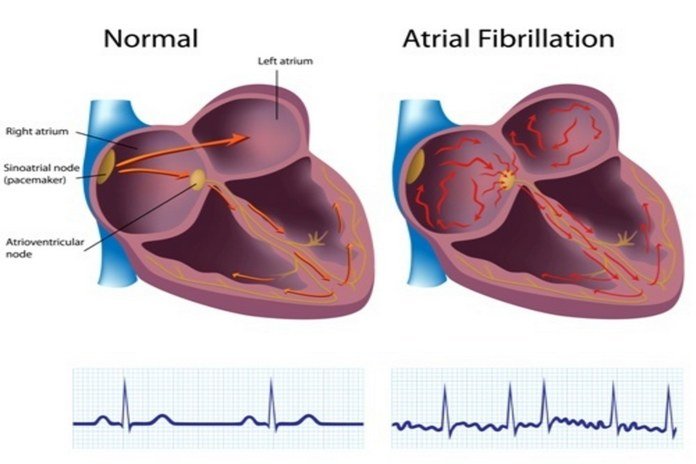Atrial fibrillation is a medical condition in which the suffering person experiences a rapid and irregular heart rate that might elevate the chances of getting a heart failure or strokes. The chances of a person having atrial fibrillation increase the risk of attaining other complications about the heart. In the case of atrial fibrillation, what happens is that the two upper atria or chambers start beating so fast, and the beating is also irregular. The coordination between the upper chambers of the heart, i.e., atrium, and the lower chambers, i.e., ventricle, does not perform optimal functions in the patients with atrial fibrillation.The most common symptoms of atrial fibrillation present in most patients include shortness of breath, weakness, and heart palpitations. Moreover, the symptoms of atrial fibrillation come and go like the depression episodes, and sometimes an emergency treatment is a must. While the attacks of atrial fibrillation do not pose any life-threatening health issues, but the doctors consider it a severe medical condition. One of the major health concerns with atrial fibrillation includes the development of blood clots within the upper chambers of the heart.

The blood clots resulting due to atrial fibrillation have a great potential to circulate throughout the blood vessels and cause the blockage of blood flow. The blocking that happens in the flow of blood through blood vessels as a result of atrial fibrillation leads to heart ischemia, i.e., blocking the blood flow to the heart. The treatments are available for atrial fibrillation to avoid any heart complications in the patients. The medical professionals suggest incorporating certain inventions to change the electrical system of the heart or use some medications to make sure that there is a smooth flow of blood

